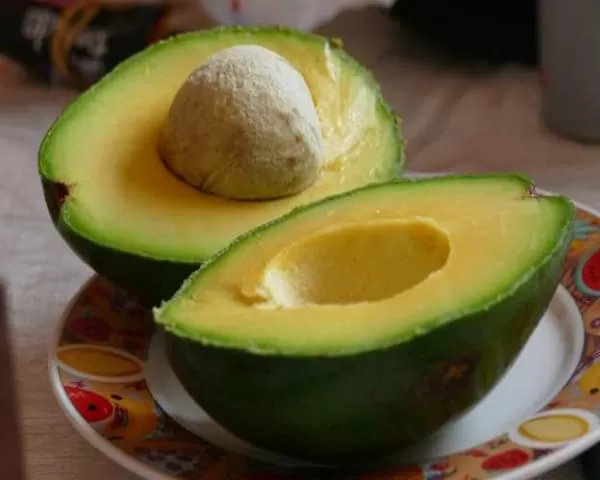People tend to confuse avocado with a vegetable, however, this incredible food belongs to the classification of fruits, providing nutrients, vitamins and minerals in necessary doses for the day-to-day life in the body. Avocado belongs to different types of fruit classification, being these the following: slimming fruits, fruits with vitamin E, aphrodisiac fruits, fruits with potassium, fruits rich in fiber, diuretic fruits, among others. This food is a fruit that is often seen worldwide, however, in a traditional way you would get it in the countries of Central and South America.
The avocado is a fruit that is characterized by its pulp totally rich in vegetable oils and thanks to its texture and flavor, this fruit is given the power to form different mixtures in the meals, so gastronomically it is an ideal food that you can include in many dishes. Normally, this fruit is known as avocado, whose roots come from the Aztec language, which is called proto. It is a food that in addition to its gastronomic qualities, provides the human body with infinite benefits capable of protecting general health.
Origin of the Avocado
The avocado is a highly nutritious fruit, which is distributed worldwide, however, the distribution of avocado is relatively recent if people take into account the age with which this fruit originated. The avocado was discovered in Mesoamerica, which means that avocado could be found previously from Mexico to the central region of America, which is currently bordering the first countries of South America.
History says that the first groups of inhabitants who belonged to these lands began to domesticate the crop more than 10,000 years ago, and there is evidence that the avocado was used mainly by indigenous people just from the region of Puebla in Mexico.
Today, in Mexico there are some avocado fields, which are the oldest crops of this fruit. Avocado began to be grown for commercial purposes in the 1900’s, thanks to the hybridization process that had been working for years. The avocado is a traditional fruit of Mesoamerica, whose name varies according to the different cultures found in those places.
Mainly, the Aztecs began to give it the name of avocado, who associated this fruit with the testicles of men, since when it ripened it took on a certain color and texture which referred to this part of the body, making it much easier for them to remember its term.
In South America, it is known as avocado, since at that time there was an ethnic group living in Ecuador and Peru that called this fruit with that finish and which has lasted for years and years. Currently, the countries with the largest distribution of avocado worldwide are those belonging to Central and South America, being the main producers of this wonderful fruit.
Avocado Properties
Within the nutritional properties you get the following:
- The fat provided by avocado is a main component after water, being its caloric value high compared to other type of fruits, however, it is lower than that of coconut, which is the fruit with the highest fat content.
- Among the fats that it provides to the body, most are the so-called monounsaturated, which are formed by oleic acids or, failing that, elements that are associated with olive oil.
- Avocado provides low amounts of carbohydrates, so in protein, also have a certain deficit of content. However, they are high in minerals, such as magnesium and potassium, which help in the generation and transmission of the nerve impulse, as well as improving the functioning of the intestines, nerves and muscles.
- On the other hand, avocado stands out for its vitamin E content, which are antioxidants that help intervene in the stability of all blood cells, including the fertility process. In addition, it provides certain water-soluble vitamins that collaborate 100% with the functioning of the nervous system.
Within the Health Properties you Get the Following:
- It is a fruit that tends to have delicate flavors, besides that its consumption is extremely easy and without complications, they are rich in fats, antioxidants and minerals, which turn out to be of great allies for the health. It is recommended for all types of people, children, youth, adults, athletes, among others.
- Because of its great contribution to antioxidants, avocado is recommended for people suffering from cardiovascular diseases, since it protects cholesterol, helping to reduce the intake of foods that increase bad cholesterol, also taking care of blood levels and protecting cells from being dispersed towards the liver, thus avoiding their accumulation in the walls of blood vessels.
- Likewise, the vitamin E provided to the body by avocado contributes to reduce the risk of different diseases, which can be degenerative, cardiovascular or even unwanted cancer.
- Thanks to its contributions in both potassium and magnesium, it is usually a recommended fruit for all those people suffering from high blood pressure or conditions in the blood vessels and heart.
- Due to its high content in fatty acids, being these Omegas 3, 6 and 9 provide the necessary energy for the day to day, also, the avocado helps to improve the immune system, thanks to its high content in carotenoids, which protect the vision and the skin, avoiding mainly the signs of aging.
Benefits of Avocado
Among the main benefits of avocado you get the following:
- Nowadays, it is known that avocado is a fruit of high benefit due to its properties, vitamins and minerals, which are ideal for the maintenance of the integrity of the human being.
- Avocado has a high content of lipids, substances that are related to high levels of fatty acids, which are classified as monounsaturated, representing greater health benefits.
- Avocado helps fight any negative effect of high cholesterol levels in the blood, reducing the risk of cardiovascular diseases and circulation problems. It is an ideal fruit to avoid the elevation of blood pressure and reduce all cholesterol levels.
- The avocado is a good energy carrier, which is feasible for the proper functioning of the system or body of people. It is a fruit that causes instant satiety, keeping people from sinning between meals.
- Thanks to its high content in fiber, the avocado is useful for the dietetic process, which is looked for mainly to fight the excess of calories consumed during the ingestion, which is necessary for the system of balanced feeding.
- The avocado is also ideal for skin and hair, thanks to its powerful Omega 9 factor, which is able to prevent premature aging and revitalize hair, giving it a unique and optimal touch of brightness.
- It is rich in carotenoids, which benefit the visual health since they promote the production of elements that help reduce the risk of vision loss, and failing that, the appearance of cataracts. It also improves eye health, due to its high lutein content, making it an ideal oxidant.
Types of Avocado
There are different types of avocados, which are classified according to their most relevant characteristics. Usually there are three known worldwide, which are the West Indian avocados, the Guatemalan avocados and the Mexican avocados.
- The Bacon avocado is characterized by being in tropical climates, extremely delicate texture, a striking green skin color and its pulp is usually of high quality, thanks to its flavors and nutrients, which are highly beneficial to the human body.
- Next, you get the strong avocado, which is characterized by its large size and weight, approximately between 750 and 900 grams, its skin is thin and its pulp tends to be sour on many occasions. It is ideal for the immune system.
- The Zutano avocado is extremely shiny and thin-skinned, while its texture is soft, so this type of variety does not have much flavor, being one of the few showy worldwide. It is characterized by its aroma, which is a little strong.
- The Hass avocado, which is one of the queen varieties of many places in the world, usually has a rough skin, its color is dark green, which turns almost black, and you get it often in the months of May, June and July. Its pulp is of good quality but not very fibrous, it is characterized by its flavor with touches of nut in the palate.
- The Reed avocado, is originated in Guatemala, it is characterized by its extremely vertical and heavy bearing, it ripens precisely in the summer months. It is usually rounded, its pulp as well as Hass avocado is with touches of nuts.
- Finally, you get different types of avocados such as pinkerton, lamb hass, excrude and forged, being conventional avocados, resistant to high temperatures and tending to be either very sour or very sweet.
Avocado Tree
The avocado tree, also known as the avocado tree, belongs to the Lauraceae family. Its first cultivation was discovered in Central America, which was extended to Europe and Asia for commercial purposes after it was discovered.
It is a perennial fruit tree, which has great size, reaching up to 24 meters in length. It is a tree that tends to grow in extremely tropical climates, so it is often seen in different fields worldwide.
The tree of the avocado turns out to be leafy, with a strong and straight trunk, its flowers turn out to be small, tending to reflect showy colors like green or in its defect, green yellowish. Many inhabitants that are in the cultivation of this tree put the same name to it as to its fruit, avocado.
It is an extremely versatile tree, which is currently used, because its use is not only limited to the pulp of the fruit, but also, people can use the other parts of the tree, either wood, natural oils, leaves, seeds, among others.
The wood of the avocado tree can be used for building houses, furniture or firewood; the leaves are implemented for medicinal uses, predominantly anti-inflammatory; the seeds are used as purgatives, which turns out to be beneficial for the digestive system and the natural oils tend to be consumed mostly when cooking.
Avocado Get You Fat ?
Avocado offers different benefits at the time of losing weight, which is carried out by a highly controlled consumption of this fruit, which allows people to accelerate their metabolism and thus control the level of fat found in the blood.
However, if avocado is used with excessive consumption, it can increase the weight of the child, youth or adult, so it is a fruit recommended by doctors but not for constant consumption.
To clarify, because avocado provides a large amount of fatty acids to the body, people have the tendency to think that some weight gain can occur, and indeed it is, a fruit rich in lipids, with a high amount of calories which are contributed to the diet.
However, avocado is made up of monounsaturated fatty acids, so its fat content is much healthier than that of other foods. In this sense, even though avocado is a fruit with high amounts of calories, these are due to its high lipid content.
In the end, it is a food that can be ingested but with a moderate consumption, since it will provide the same or better beneficial characteristics than other fruits that you may eat frequently in your balanced diet.
Does Avocado Have Fiber ?
It is a fruit high in fiber content, which turns out to be beneficial for the health of the digestive system, since it helps people avoid all kinds of constipation and favors in a direct way the intestinal transit.
Thanks to its vegetable fiber, it helps contribute to weight loss, reducing the levels of sugar found in the blood and keeping people much healthier than they already were.
Does Avocado Have Sugar?
Avocado is an ideal fruit for people suffering from diabetes, since it is rich in monounsaturated fats, which will favor the control of glucose in the blood, besides containing a high energetic value and having few quantities of sugar supplied to the body.
It is one of the few fruits that provides few quantities of sugar to the human body, providing unique health benefits, besides it can be used even for cosmetic purposes. It is an extremely versatile fruit and practical to implement in the culinary field.
Does Avocado Get You Fat at Night?
Even though the caloric value of avocado is not the most favorable and people think it does not seem to be an ally to lose weight, everything remains a myth, since this fruit does not generate weight gain or loss by consuming it either during the day or at night, it only provides notorious amounts that can contribute to a good diet and keep the body in a stable operation.
Is Avocado Diuretic ?
Avocado is a good food for diuretic or depurative intakes, since it possesses enough potassium and magnesium; with the presence of these minerals, avocado helps to counteract the excess of both salt and liquid found in the body, being an ideal fruit that fulfills its diuretic process through urine, discarding all the toxins not needed by the body itself.
Is Avocado Good For Digestion ?
Avocado is an ideal fruit for good digestion, since it helps reduce cholesterol and contributes to prevent liver diseases. Likewise, it is a fruit capable of working correctly and ideally in the intestinal transit, keeping away any element that may harm the stomach through food that is consumed regularly.
Does Avocado Get You Lose Weight ?
Although people say otherwise, avocado helps in a certain way to lose weight, thanks to its contents in totally healthy fatty acids, which help control the metabolism itself. Likewise, it controls the levels of fat in blood, so it helps people feel more satiated. However, it is ideal that it is not consumed in excess so that the effect is reversed.
Calories of Avocado
Within the nutritional value at 100 gram scale, avocado contains 160 calories, 15 good fats in total, provides 2 grams in protein, provides 7 milligrams of sodium, a total of 485 milligrams of potassium and 9 grams of carbohydrates.
History of Avocado
The avocado originated in Mexico, although in other stories it is said to have been born in Colombia and Venezuela. The first Spanish colonizers called this fruit the “pear of the Indies”, given its resemblance to Spanish pears.
Today, the main producers of the avocado are Brazil, United States, Mexico, Spain, Israel, China and Australia. Among the most known varieties you can find the Hass avocado, the Fuerte, the Cocktail, the Bacon and the Pinkerton.
Topics Related to Fruits in ALPHAPEDIA

💚 THE GRAPE: Properties, Origin and Benefits

BLUEBERRIES: Benefits, Properties and Contraindications

PERSIMMON: Origin, Properties and Benefits

LOQUAT: Properties and Benefis. What Is It For ?

WATERMELON: Benefits, Properties and Contraindications

BANANA: Benefits, Properties and Contraindications
Health and Wellness Issues at ALPHAPEDIA

💚 WHAT IS THE OMEGA 3 GOOD FOR ? Benefits and Properties

APRICOT: Properties, Benefits and Their Contraindications

GARLIC: Properties, Benefits and Contraindications

ALMOND: Benefits, Calories and Properties

ZUCCHINI: Properties, Benefits and Characteristics

WATERMELON: Benefits, Properties and Contraindications
Other Topics of Interest in ALPHAPEDIA

FREE BUSINESS COURSE

FREE CERTIFICATE PROGRAM IN COSMETOLOGY

GREY COLOR: Meaning and Psychology

FREE VIDEO COURSE

FREE DRAWING AND PAINTING COURSE

FREE MASTER DEGREE IN ECONOMICS
Images or Drawings of Avocado



